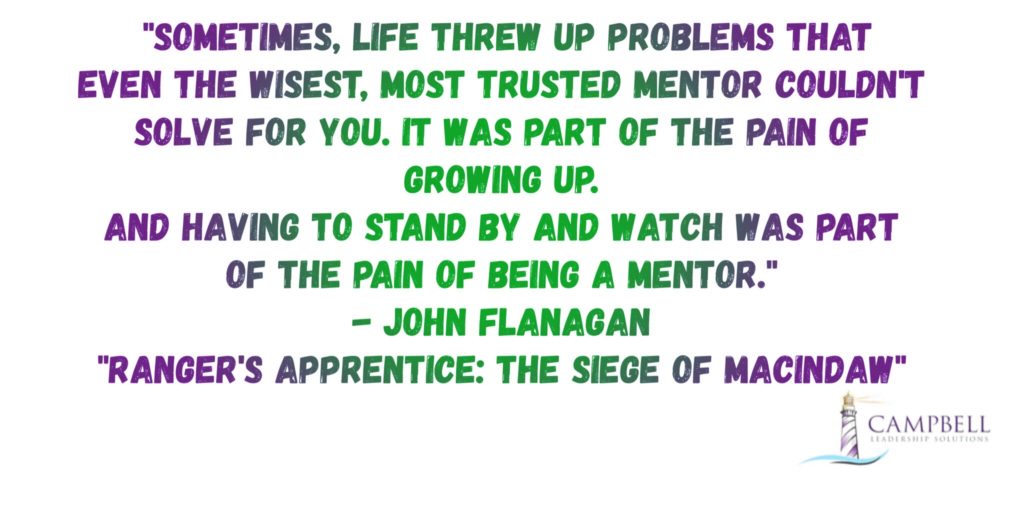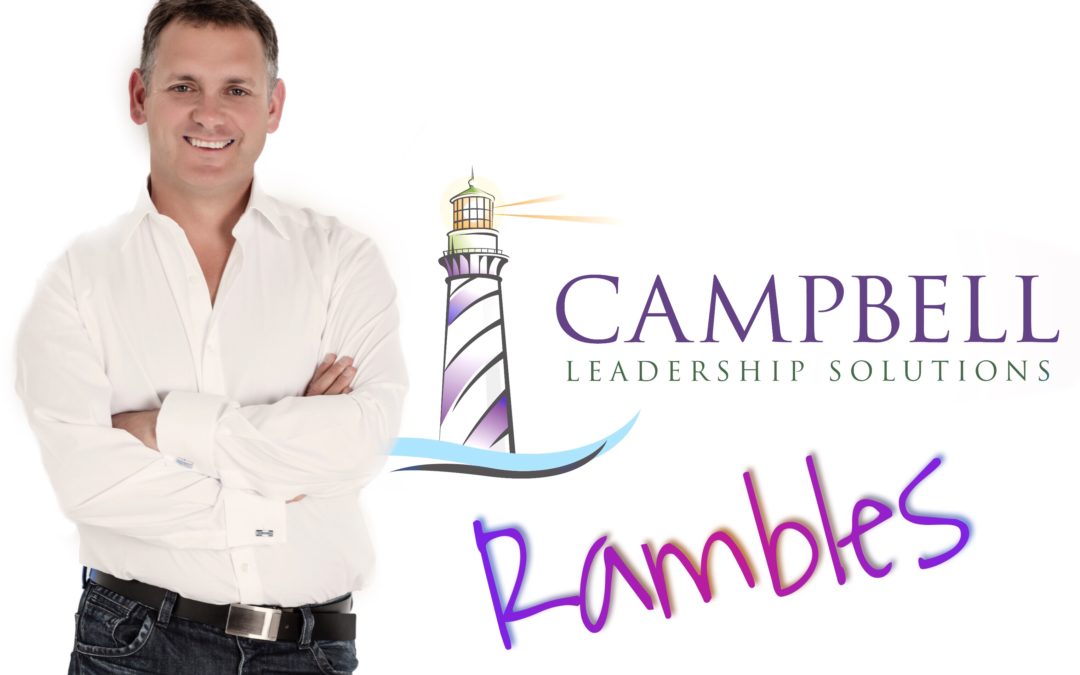As a kid, I loved reading fiction. Specifically, I liked science fiction and fantasy. Ever since I picked up a copy of ‘The Hobbit’ I devoured anything like it I could find. That habit started to change about 15 years ago. While I would still read a little of this genre, my attention turned to books on military history, strategy and leadership. This was not unexpected noting my recent career. Regular followers of my blog will recognise that this time coincided with my newfound insight on leadership.
Over the last year, my attention has returned partially to the mystical and magical. I now actively try and read a few pages of something that I call ‘chewing gum for the brain’ before I go to bed at night. There are a couple of benefits. Firstly, it stops me looking at a computer, laptop or phone before I go to sleep. I’m sure we can all put our hands on a study detailing the benefits of ‘switching off’ before turning in for the night. Secondly, it takes my mind off work and allows me to immerse in an imaginary world. The neuroscientists will tell you there is a benefit to allowing your conscious mind to have a rest and your non-conscious mind to process all the important things that happened throughout the day.
Please, if you can think of other benefits then share them with the rest of us. I don’t own all the expertise here. Remember, this is just my ramble.
Lately, I have been reading a series of books that you will most likely find in the young adult section of the bookshop. It’s the “Ranger’s Apprentice” series by John Flanagan. My eldest daughter read the first of the series at high school. I read it also so I could discuss it with her. It’s an easy and entertaining read with some good lessons for teenagers along the way. I enjoyed it so much I continued to read the sequels.
A few nights ago, I read the following passage from book six of the series:
 It’s certainly had me thinking over the last few days. I’m meant to be working on a blog about bookending your day with planning and reflection, but this thought had my attention, and I decided I needed to get some ideas on paper (or a screen).
It’s certainly had me thinking over the last few days. I’m meant to be working on a blog about bookending your day with planning and reflection, but this thought had my attention, and I decided I needed to get some ideas on paper (or a screen).
When I start with a new client, and I ask them what they think coaching is, we tend to get into a conversation about the difference between coaching and mentoring. The purists will tell you that mentoring is about someone who is on the same path as you, though further ahead, offering advice about their journey in the hope that it might inform yours. While coaching, on the other hand, is about asking questions that allow you to surface new levels of insight and self-awareness to make better decisions about what your goals are and how to achieve them. There is one branch of thought that argues if you are a coach you should never give advice.
For those of you out there who have been coaches and mentors, either formal or informal, I wonder what your thoughts are on this subject.
Personally, I think that, as a coach, I need to work with my client. I need to “meet them where they are at”, a line any coach who has done any level of formal training will have heard. Coaching and mentoring is a collaborative endeavour. It’s about working together with your coachee or mentee to achieve whatever developmental goals they have set for themselves. The thing to remember is it’s not my journey. While I might, indeed I do, learn a lot from working with every single one of my clients, I have to remember, I can only ask questions and help guide. I can’t make decisions for them. Sometimes, the toughest part of being a coach, mentor or parent is about letting your “client” go through individual experiences themselves. It’s our job as coaches and leaders to have the discussions that allow our people to learn from those experiences.
Anyway, ramble done for now. It’s over to you. What do you think? Do you agree, disagree or fall somewhere in between on these thoughts?
So that we might all learn together, please feel free to leave your comments below. If you would like to discuss this, or any concept around leadership or behavioural change, then please feel free to get in contact with us here at Campbell Leadership Solutions.
Thank you for reading and leading.
p.s. Thank you very much to my nephew, Sam, for the loan of your books. I promise I will return them soon. 😉
